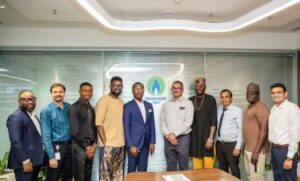
West Africa Power Pool adopts working document for 2023 —TCN
The Executive Board of the West African Power Pool (WAPP) has adopted a new work document and budget for 2023.
General Manager, Public Affairs, Transmission Company of Nigeria (TCN), Mrs Ndidi Mbah disclosed this in a statement in Abuja on Thursday.
Mbah said the adoption was done at the 55th Ordinary Session of the WAPP Executive Board Meeting at the pool’s Headquarters in Cotonou, Benin Republic.
She listed some of the WAPP ongoing projects to include the Central Information Centre (CIC) project, now at an advanced stage and the WAPP Network Synchronisation project and the WAPP North Core project, among others.
Mbah said that the high point of the meeting was the examination and adoption of the 2023 work programme and budget for WAPP.
During the session, the Chairman, Executive Board of WAPP, Mr Sule Abdulaziz, expressed satisfaction with the 2023 working document.
He said, “I remain convinced that it has been prepared in accordance with the rules by the General Secretariat and carefully reviewed by the WAPP Finance Committee.”
Abdulaziz, who is also the Managing Director of the Transmission Company of Nigeria (TCN), lauded the transparent manner in which WAPP had been implementing projects of the Pool.
According to him, on the review of the financial statements, where I expressed confidence in this institution and its transparent documentation, “ I reiterate the same sentiment regarding the 2023 work Programme and Budget.”
He urged member utility firms to endeavour to pay all contributions and settle all outstanding fees, to sustain the progress being made in the regional electricity project implementation.
The WAPP head also commended the government and the People of Benin Republic and President Patrice Talon for the facilities granted to the institution to establish its General Secretariat.
Earlier in his welcome address, the Secretary General of WAPP, Mr. Siengui KI, presented the work programme and budget for the year 2023, focusing on key projects for implementation.
He said that the WAPP projects were progressing according to schedule but needed budget adjustment to accommodate the cost escalation of project implementation.
He lauded the donor agencies but also noted the need for WAPP to explore other funding areas to augment member utility contributions to the pool.



